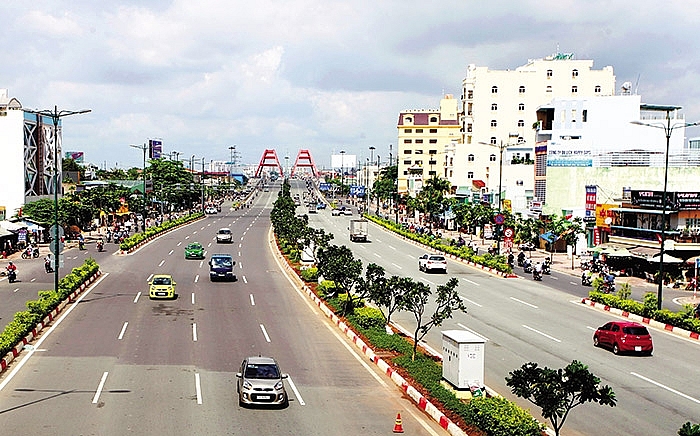
2018 was a rocky year for build-transfer initiatives after an eight-month halt in order to review procedures. (Photo: Le Toan)
On December 31, 2018, the government issued Resolution No.160/NQ-CP, setting targets for improving business environment and national competitiveness through to 2021. It is aimed to regulate the use of public assets to make payment for investors involving build-transfer (BT) infrastructure development.
A representative of Ho Chi Minh City Infrastructure Investment JSC (CII), which has many projects implemented under the BT format, told VIR that even though the delays had not impacted CII’s current projects, it did make staff worried about the company’s fate. “The management board posted the breakthrough decision to permit developers to continue their projects on our website, so that staff can know about this very good news,” the representative said.
Representatives from other developers that have BT projects such as LICOGI16, Hai Phat Invest and Van Phu Invest, are waiting for further guidance from local authorities to continue their projects.
Doan Hoa Thuan, general director of Hai Phat Invest, said that the company is working with its partners to review all current BT projects as well as focussing more on other methods of investment, such as mergers and acquisitions.
Industry experts meanwhile appreciated that the resolution had proven the motivation of the government to attract private capital investment into infrastructure system development.
"This is a very good decision...on-track projects must be allowed to continue."– Le Hoang Chau Chairman, Ho Chi Minh City Real Estate Association
“This is a very good decision,” Chau said. “Looking at current BT projects, they are combined projects across all stages – those that have been handed over to buyers; those under construction; those transferred to secondary buyers; and projects in which buyers had been given the red book already. On-track projects must be allowed to continue.”Le Hoang Chau, chairman of the Ho Chi Minh City Real Estate Association, said the reason for halting BT projects was to review and select ventures which were given to developers without bidding and auction.
Meanwhile Dang Dinh Dao, former rector of the Institute for Development and Economic Researching at the Hanoi Economic Institute, affirmed that the move presents a motivation from the government in solving wrong-doing in BT projects. “Projects which were revealed to have problems will be revoked and taken into public auction,” Dao said.
As per the resolution, specifically BT construction contracts which were signed before January 1, 2018 but with payments yet to be completed will continue following the law effective at signing time, ensuring compliance with the law on management and use of public assets.
For contracts signed after January 1, 2018 which have the terms of use of public assets for payment, ministries and local departments, are requested to review contracts to ensure compliance of the law on use of public assets in 2017 and other relevant laws on land. In the case that content complies with the law, the payment will continue to follow the provisions stipulated in the BT contract. If not, it must be negotiated and adjusted.
For BT projects that have completed investor selection in accordance with the law before the resolution takes effect, but contracts have yet to be signed, the competent authorities will conduct negotiations and sign BT contracts to ensure compliance with the law on management and use of public assets in 2017 and laws on land and the state budget.
BT infrastructure investment in exchange for public land is one of the two main types of public-private partnership, a channel to mobilise investment capital from the private sector. The other type is the build-operate-transfer model.
With the increasing demand to develop infrastructure in the country in the context that the government budget is limited, BT is a favoured method to improve the infrastructure system as well as other public facilities. However in March 2018, the Ministry of Finance ordered localities to stop using public assets to pay BT investors until a governmental decree took effect.
Before the resolution was issued, BT infrastructure projects attracted heavy criticism, most notably for a lack of transparency, which is said to lead to a higher risk of corruption. Local authorities ultimately had to give up many land lots, including several hectares in prime locations, for private project developers, causing a lack of land for the city and many concerns over wastefulness.
Auditors and land management experts are sceptical about the efficiency and transparency of projects carried out under BT contracts, after many suffered long delays and major problems along the way.
BT refers to the practice of giving land to investors who pledge to build infrastructure. The format was introduced to Vietnam in the early 1990s, when localities across the country lacked funds for developing infrastructure.


















